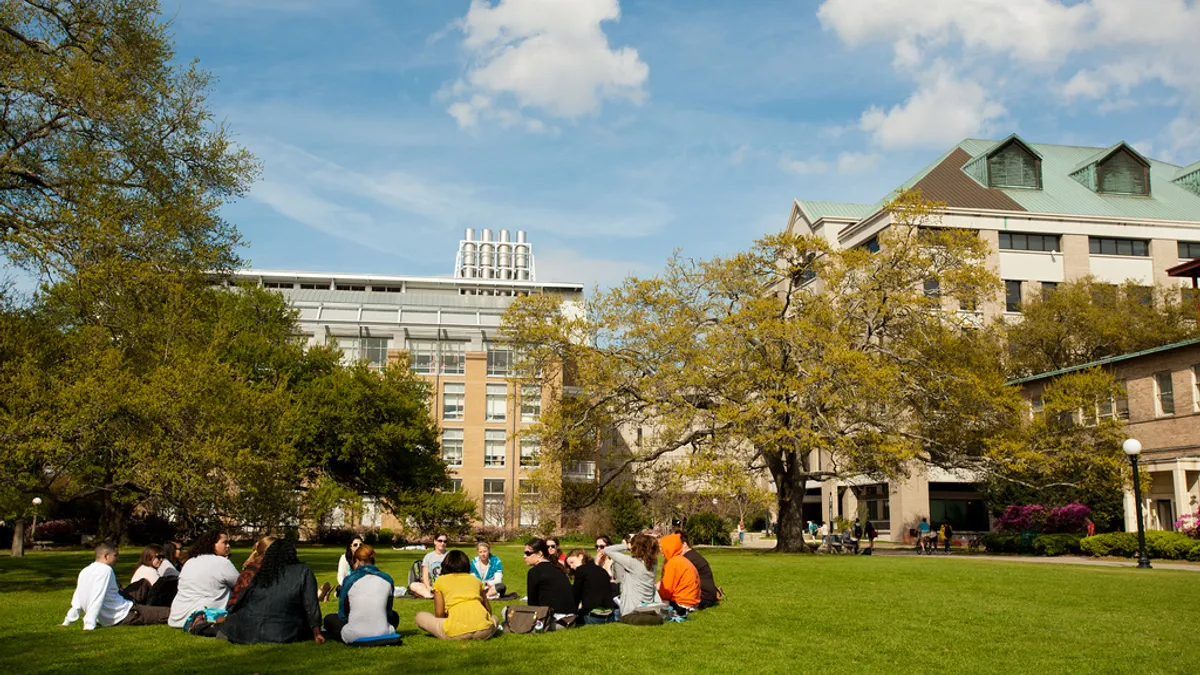Is your college interested in participating in the column for 2019? Let us know.
The student body is changing, and that's requiring colleges to respond with new and innovative paths to completion. Our regular President Speaks column gives higher ed leaders the opportunity to sound off on these and other matters to help shed light on the issues affecting colleges across the country as well as others that are more isolated.
Below, we round up a handful of our most popular posts from the series in 2018.
The role of higher education in a 'post-truth' era
Current events raise a critical concern for college leaders: "What is the role of higher education at a time when the very ideas of truth, facts and core principles of justice seem up for grabs?" That's the central question in this column by Rollins College President Grant Cornwell. He contends that colleges have an obligation to teach students about more than critical thinking, and to present certain matters — such as climate change and wealth distribution — as fact. "What does a global citizen and responsible leader know?" he asks. Read more.
It's time to rethink remedial education
Colleges are evaluating a growing body of research that shows how taking remedial courses can negatively impact students' time to graduation and their debt loads. In this op-ed, the City University of New York Interim Chancellor Vita Rabinowitz and Board of Trustees Chairman William Thompson Jr. (top image) discuss the system's move to offer corequisite courses and to target high school students for remediation before they get to campus. "What we are doing is removing obstacles to a college degree," they write. "The early returns are promising." Read more.
Let's stop talking about 'nontraditional students'
With one in five college students age 30 or older and half financially independent, so-called nontraditional students are becoming more the norm than the exception they once were. Dr. Alan Kadish, president of Touro College and University System, challenges higher ed leaders to cater to this growing demographic with flexible schedules, online courses and guidance programs that acknowledge their life experiences. "We need to make our programs as welcoming to the students of the future as they have been for students in the past," he writes. Read more.
Helping students believe college is 'worth the investment'
As head of an institution that's located in an area where the share of adults with a bachelor's degree is well below the national average, Ohio University President M. Duane Nellis says attracting first-generation students can be a challenge. In this post, Nellis explains how attending college can bring those students into a "new, temporary family" of people with different religious, political and economic backgrounds. "Our experiences enrich and shape who we are," he writes, "and exposures to diverse people and philosophies often occur for the first time in a college environment." Read more.
How Grand Canyon University is building its K-16 pipeline
To ensure local high school students have a supportive environment after the school day ends while helping build brand awareness among future prospective students, Grand Canyon University added a Learning Lounge to its campus. There, those students can get help with homework and become eligible for full-tuition scholarships. In this op-ed, GCU President Brian Mueller explains why the university took the step at its Phoenix campus and was able to create "a sustainable and scalable program that does not rely on government intervention." Read more.










